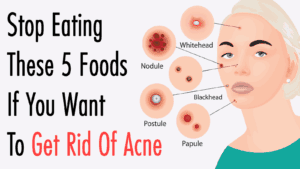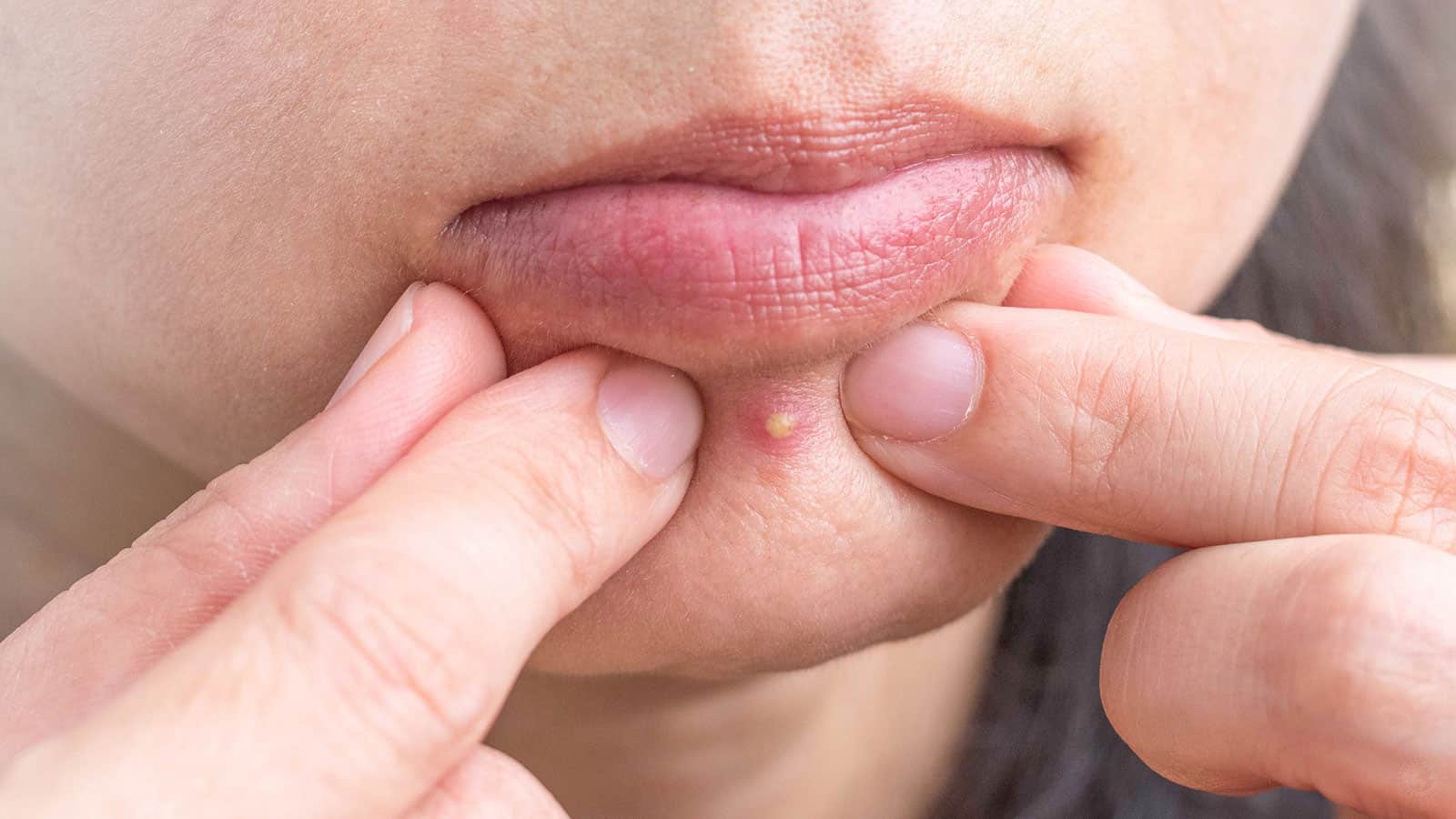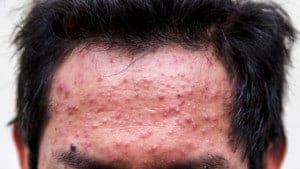It’s hard to resist the urge to pop pimples when they appear–usually at the most inopportune times. However, dermatologists warn that this is a wrong move for an acne outbreak.
For those who may not already be aware, the skin is the body’s largest organ. It also protects us against changes in temperature, microorganisms, radiation, chemicals, and much more. And while it does an excellent job in safeguarding our health and overall well-being, the skin is unfortunately prone to acne and other blemishes. Although skin imperfections are not the end of the world, they can quickly take a toll on one’s self-esteem.
As such, when it comes to pimples, many individuals often try to pop them so they don’t appear as prominent. And this may seem like a good idea at the time. However, there are many reasons why you should curb the urge to pop pimples, also commonly referred to as acne.
So in this article, we will take a closer look at what happens when you pop pimples and what you should consider doing as an alternative.
WHAT HAPPENS TO YOUR SKIN WHEN YOU POP PIMPLES?
When it comes to pimples, there is a whole lot more to them than what we see when we look in the mirror. The small raised bumps that we consider unsightly are called pustules, containing dirt, oil, and other bacteria. The primary role of these pustules is to isolate and prevent these contaminants from affecting other parts of the skin. If you pop your pimples, the dirt, oil, and other bacteria in the pustules will ooze out, reducing the pimple’s size; however, the downside is that these contaminants often seep into other pores in your skin.
In the end, you will likely end up with more pimples than you originally started with in the first place. Moreover, oils, dirt, and bacteria can also transfer from your fingers to the pores in your skin. If this happens, it can lead to scarring as well as infections. In short, popping your pimples will significantly impact your skin’s health and appearance.
HOW TO GET RID OF PIMPLES WITHOUT POPPING THEM
Having detailed the consequences of popping pimples, let’s focus on eliminating them without making matters worse. And yes, it is possible. Some of the more time-proven at-home remedies include the following:
Tea tree oil
Extracted from the Melaleuca alternifolia, a tree native to Australia, tea tree oil is an excellent at-home treatment for pesky acne. Tea tree oil is effective in combating cutibacterium acnes and staphylococcus epidermidis. It is important to note that these two forms of bacteria are the leading cause of skin inflammation and pimples. A separate study published by the National Institutes of Health revealed that 5 percent of tea tree oil is just as effective in reducing acne as over-the-counter treatments that contain 5 percent benzoyl peroxide. Even more than that, study participants who used tea tree oil to combat acne experienced fewer side effects, such as burning, dryness, and irritation, compared to benzoyl peroxide.
How to use tea tree oil to heal pimples
Having established the fact that tea tree oil is a safe and effective way to resolve pimples, let’s take a look at the steps you will have to take to get the most out of this at-home remedy:
- Mix 1 part tea tree oil and nine parts of water.
- Apply a small mixture to a clean cloth or cotton swab before applying it to your pimples.
- Repeat this process once or twice daily until your pimples have gone away.
- If sensitive skin is prone to dryness, it may be a good idea to use a moisturizer after applying tea tree oil to your pimples.
Along with tea tree oil, rose, lavender, clove, and other essential oils are also effective at resolving pimples.
Green tea
Along with numerous health benefits, green tea can also help reduce pimples due to its antioxidant properties. The same study published by the National Institutes of Health revealed that green tea not only combats inflammation but also impedes the production of sebum and cutibacterium acnes, both of which can contribute to problem skin.
How to use green tea to avoid the need to pop pimples
To get the most out of using green tea on your pimples, you will want to do the following:
- Prepare the tea according to the packaging instructions and allow it to cool.
- Apply the tea to your pimples using a clean cloth, cotton balls, or a spritzer bottle.
- Allow the tea to remain on your skin for about ten minutes before washing your face.
- Repeat this process once or twice daily until your pimples have gone away.
Much like essential oils, if you are prone to dry skin, using a moisturizer after washing the green tea off your skin would be a good idea.
Aloe Vera
All-natural Aloe Vera is yet another great way to reduce acne without further irritating your skin. Like many other at-home remedies detailed in this article, Aloe Vera is helpful in fighting bacteria and reducing inflammation that causes pimples and other skin problems. And unlike when you pop pimples, Aloe Vera won’t cause scarring or infections as you work toward achieving blemish-free skin. Aloe Vera gel, which contains lupeol, salicylic acid, urea nitrogen, cinnamic acid, phenols, and sulfur, helps fight off bacteria that otherwise give way to pimples.
How to use aloe vera to reduce your pimples
To get the most out of using Aloe Vera on your pimples, you will want to do the following:
- Scrape a spoonful of Aloe Vera gel from the leaves of an Aloe Vera plant.
For best results, consider combining Aloe Vera with another acne treatment of your choice as doing so will help boost the anti-acne effects. - Repeat this process once or twice daily until your pimples have gone away.
- Scrape a spoonful of Aloe Vera gel from the leaves of an Aloe Vera plant.
WHEN SHOULD YOU CONSIDER SEEING A PHYSICIAN?
If you have tried the at-home remedies detailed in this article and are still struggling with pimples, it would be a good idea to be seen by a physician, preferably a dermatologist. Although it may contradict the information in this article, a dermatologist will pop pimples to reduce their size and improve the health of your skin. However, they do so without further damaging the skin.
To treat pimples, a dermatologist will wear gloves to help minimize the risk of skin infection. They will then lance the bump using a sterile needle before removing the dirt, oil, and other bacteria with a comedone extractor. For those unfamiliar with them, comedone extractors are small metal tools that can force out the contents of a pustule without damaging the surrounding skin. Depending on the type of pimples a patient has, physicians will use one of the following comedone extractors:
- Angled loop
- Flat loop
- Lancet
- Small loop
- Spoon extractor
HOW TO LOWER YOUR CHANCES OF GETTING PIMPLES
The best way to avoid feeling tempted to pop pimples is to reduce your chances of developing them. Some of the things that you can do to keep your skin healthy and blemish-free include
Limiting dairy intake
Some research indicates that individuals who consume large amounts of milk, cheese, and other dairy products are more likely to develop pimples than those who do not.
Minimizing stress
Not surprisingly, stress can take a toll on your mental health; however, it can also affect your skin and overall physical health as well. Studies show that there is a definite correlation between high stress levels and pimples. That said, it is a good idea to keep stress to a minimum by taking calming baths, exercising, or meditating.
Washing your hands
Considering how often we touch our faces with our hands, keeping them clean is a good idea. After all, regular hand washing can significantly lower the risk of transferring oil, dirt, and bacteria from your hands to your face, leading to clogged pores and pimples.
Although there are other things that you can do to minimize your chances of getting pimples, those listed in this article are the ones frequently recommended by dermatologists.
Furthermore, should you pop pimples despite your new knowledge, wash your hands before doing so!
 BOTTOM LINE ON CURBING THE URGE TO POP PIMPLES
BOTTOM LINE ON CURBING THE URGE TO POP PIMPLES
In summary, it is never a good idea to pop pimples, as doing so can do more harm than good. Instead, you should follow the recommendations in this article for effective at-home treatments that will help you get rid of them. Of course, if you’re struggling with severe or stubborn pimples, scheduling an appointment with a general physician or dermatologist would be best.


















